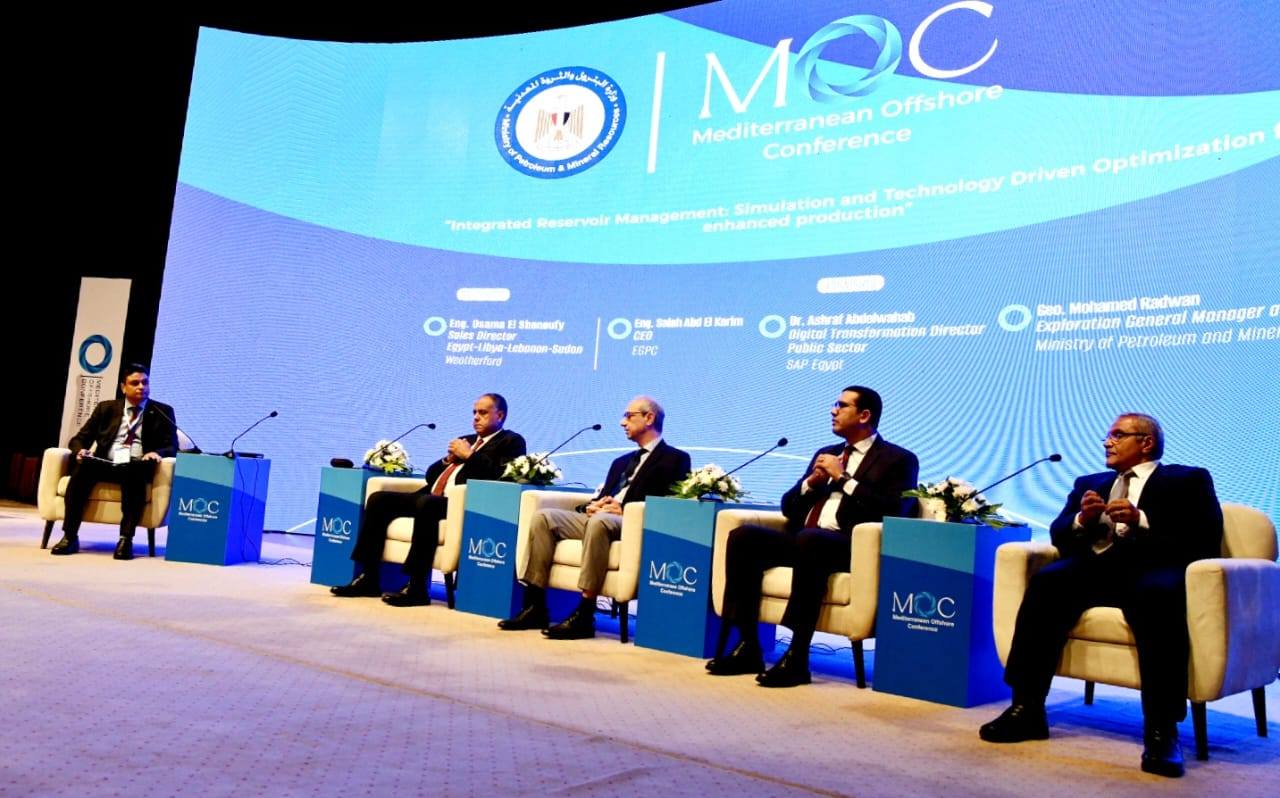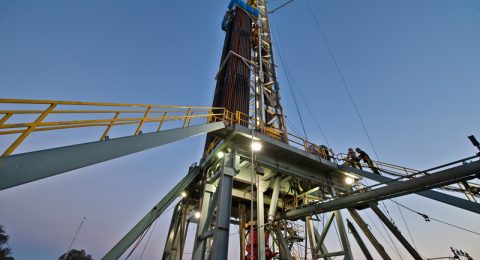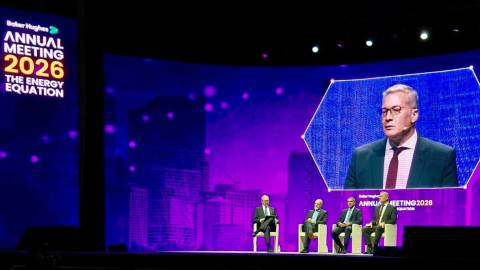On the second day of the Mediterranean Offshore Conference (MOC 2024), a panel session titled “Integrated Reservoir Management Simulation and Technology-Driven Optimization for Enhanced Production” was held. During the session, Salah Abdel Karim, CEO of the Egyptian General Petroleum Corporation (EGPC), highlighted the potential of Egypt’s reservoirs and liquefied natural gas (LNG) plants, emphasizing the opportunity to apply integrated reservoir management simulation to boost production.
The speakers at the panel included also Mohamed Radwan Manager and Egypt Upstream Gateway (EUG) project Manager, Ahmed Hamdy El Banby, Professor of Petroleum Engineering at the American University and Ashraf Abdel Wahab, Director of the Digital Transformation Sector at SAP Egypt. It was moderated by Osama El Shenoufi, Regional Sales Manager at Weatherford They reviewed the impact of the artificial intelligence tools and modern technologies on achieving integrated reservoir management.
Radwan explained that the current priority is to maximize the benefit from reservoirs and extend their productive life, noting that the Egyptian petroleum sector operates 550 fields. Therefore, tailored simulation systems must be applied to accommodate the varying sizes of these reservoirs, particularly the major fields.
He also highlighted the significant opportunities in brownfields, where production has already commenced in some areas. Additionally, Radwan emphasized that the Egypt Upstream Gateway (EUG) provides comprehensive data and supports the use of advanced technologies across the sector.












